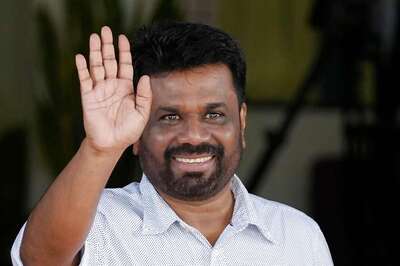
views
Karnataka seems to be going the BJP way and there are rumours that the next government to fall might be the one in Madhya Pradesh, which already shows signs of unrest among Congress MLAs.
Recently, 10 of 15 Congress MLAs shifted loyalty to the ruling BJP in Goa. Before that, in Telangana, 12 of 18 Congress legislators merged as a bloc with the TRS. Similarly, in Andhra Pradesh, 23 legislators defected from the YSRCP to the TDP between 2014 and 2019, but none of them were disqualified. The BJP came to power in Arunachal Pradesh in 2017 after Chief Minister Pema Khandu switched loyalties to give the saffron party its government. There are many more such examples of lawmakers crossing the floor in other states and also in Parliament.
Unfortunately, even after three decades and more, politicians have violated time and again the spirit and letter of the 1985 anti-defection law. Political defections have reached alarming proportions, making a mockery of democracy. All these bring us back to the question of whether anti-defection laws need a relook.
It was prime minister Rajiv Gandhi who brought the anti-defection law in Parliament in 1985 soon after he came to power with a brute majority in 1984 after the assassination of his mother and the late PM, Indira Gandhi. The main intent of the bold measure was to deter the defection of lawmakers lured by the promise of office, cash or other considerations. It was a well-intended legislative measure and the Statement of Objects and Reasons of the bill read: “The evil of political defections has been a matter of national concern. If it is not combated, it is likely to undermine the very foundations of our democracy and the principles which sustain it.”
What is the anti-defection law? It refers to the ‘Aaya Ram, Gaya Ram’ culture, a phrase coined after Haryana MLA Gaya Lal changed his party twice in one day and thrice within a fortnight in 1967. Rajiv Gandhi’s anti-defection law sought to prevent such political defections. The Tenth Schedule, as the anti-defection law was called, was included in the Constitution. It said that if an elected member “voluntarily gives up his membership” of a political party or if the lawmaker abstains from voting in the House contrary to the direction issued by the party without prior permission, he faced disqualification.
The law has undergone many changes since then. Paragraph 3 of the Tenth Schedule originally recognised a ‘split’ if one-third members of the legislature party decided to form or join another political party. The 2003 amendment changed it to “at least two-thirds of the members” should agree for merger.
Also, initially, the decision of the presiding officer was final, but the Supreme Court ruled in 1992 that there could be judicial intervention but not before the presiding officer gives his order.
On the plus side, it provides stability to the government by preventing party hopping. Secondly, it also ensures that the candidates remain loyal to the party. On the other hand, it reduces the accountability of the government to Parliament. It also curbs dissent against party policies.
The Supreme Court has interpreted the law many times and continues to do so. Still, horse-trading goes on and lawmakers make full use of the loopholes. The law assumes that the Speaker will decide things on merit and be impartial. There are allegations that presiding officers have not acted as impartial umpires often on issues related to defection. One such instance was the disqualification of 11 MLAs in Karnataka in 2010 by the Speaker.
Similarly, the governor is meant to be non-partisan, who should not dabble in politics. The reality is different. In the case of the current crisis in Karnataka, the speaker is alleged to be partial to the Congress while the Governor is accused of being sympathetic to the BJP. It has also been alleged that the opposition, with huge funds, can topple any government.
Many panels, including the Dinesh Goswami Committee on Electoral Reforms, law commission and the Constitution Review Commission felt the need for deletion of the Tenth Schedule provision regarding exemption from disqualification in case of a split. Various committees have also recommended that the president and the governor should decide on disqualification in coordination with the Election Commission.
All these prove the need for reforms in the anti-defection law. The first is that the presiding officer should decide on disqualification within a time limit. Secondly, whip should be issued only at the time of trust motion and finance bills. Congress leader Manish Tiwari plans to bring a private member’s bill soon in this regard. It is nobody’s case that presiding officers and governors are not playing truant.
It is clear that the anti-defection law is the wrong remedy to tackle corruption. Instead, lawmakers should be punished stringently if they are found guilty. The constituents should have the right to recall their representatives if they indulge in political hara-kiri. The provision relating to mergers should also be amended. It is imperative that the law must be reviewed so as to end any conflicts between the legislature and the judiciary.
Political dramas of the kind playing out in Karnataka should not be allowed to continue as it is a mockery of democracy.
(The author is a political analyst. Views are personal)




















Comments
0 comment